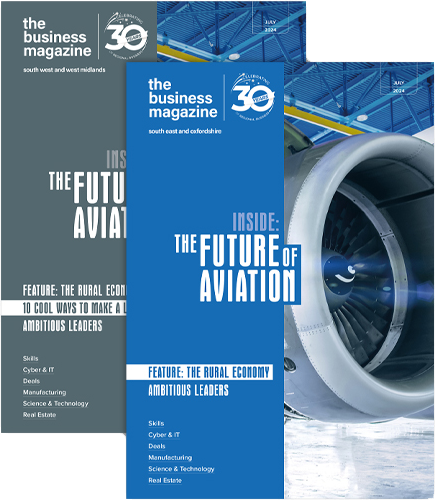Research led by UWE Bristol develops 3D printed meals for dysphagia sufferers

A research team, led by UWE Bristol, has developed special meals for people with dysphagia (difficulty swallowing) using 3D printing.
It is estimated that up to 16% of the UK population has the condition - it is more common among older adults and those with conditions such as stroke and dementia patients.
READ MORE: UWE Bristol’s Future Space innovation centre expands
The food is made by adding ingredients to cartridges which are then placed inside the 3D printer.
The ingredients are then extruded as ‘ink’ through nozzles onto a plate. Layers of ‘ink’ are deposited on the surface of the plate in a pre-programmed shape, then multiple layers are added to build a three dimensional object.
The meals were developed alongside clinical nutritionists to ensure they were complete, multi-ingredient, nutrient-rich dishes.
Following the success of the lab-based research, the academic team now hope to secure funding for a clinical trial.
"With our 3D printed food, there is significantly less risk of food particles sticking in the throat or the oesophagus, which can be very problematic for people with dysphagia, "said Dr Alexndros Stratakos, associate professor in sustainable agri-food production at UWE Bristol.
"It requires less chewing and has a specially formulated structure which gives more control of the food to the person with dysphagia.
"Previous research on 3D printed food suitable for dysphasia has focused on meals with only one or a small number of ingredients and has paid less attention to the nutritional profile of the food. Our food product is the first that is suitable for people with dysphagia, but at the same time is nutritious, palatable and rich in calories."
A survey showed UK-based dysphagia patients and their carers were "overwhelmingly positive" about the concept of the type of 3D-printed meals produced in the study.
Respondents said they would be willing to purchase the meals if they were commercially available.
Dr Stratakos said the team were pleased with the results of the project and the results.
"It's important to evaluate the suitability of this product, and this would involve a clinical trial where it would be tested by patients with dysphagia. We have taste tested the food ourselves here in the lab and it tastes great."
The Stroke Association is also funding research into this area and is currently running a feasibility study to test alternatives to thickened liquids for stroke survivors with dysphagia.
"We are pleased to see research being conducted in this area, because we know that finding ways to reduce the risk of lung infections and other complications after stroke is important to stroke survivors, as is understanding how to support them in regaining the abilities needed for everyday life," said Dr Clare Jonas, research communications lead at the Stroke Association.
The project was an international collaboration between the UK, Greece and Serbia, including four researchers from UWE Bristol and academics from the University of the Peloponnese and University of Novi Sad.


















